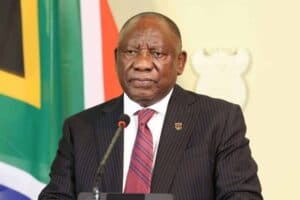Ramaphosa, a deft understudy as deputy to former president Jacob Zuma, has deployed all the Zuma stratagems

Time-wasting legal ploys, ignoring the findings of his own judicial inquiries, shielding allies while prosecuting foes and browbeating his party’s MPs to avoid impeachment.
These were all used by former president Jacob Zuma to cling to power and to avoid answering in court to what, on the face of it, looked awfully like criminal corruption.
There was one notable exception. Virtually the only state institution to prevail against Zuma’s arsenal of evasion, collusion and subversion was the Office of the Public Protector.
For it was advocate Thuli Madonsela’s report into illegal state spending on the former president’s rural home at Nkandla that started Zuma’s slide into ignominy.
Ramaphosa, a deft understudy as deputy to Zuma, has deployed all these Zuma stratagems.
As with Zuma, the objective was to stall having to answer for what, on the face of it, looks awfully like criminal corruption.
But Ramaphosa has now gone one better than his old boss.
Also facing an investigation into presidential domestic shenanigans – in CR’s case, a large amount of dollars stolen from the sofa in which they were hidden on his Phala Phala game farm – the president has pulled off a move that will leave Zuma green with envy: he has managed to defang the public protector.
Last Friday, the acting PP, Kholeka Gcaleka, released the long-awaited findings on the Phala Phala controversy.
And she performed 100% true to expectations. Gcaleka dished up a report that was as convoluted and tricky to unravel as a plate of congealed spaghetti.
By interpreting her mandate as narrowly as possible and resolutely ignoring the important in favour of the peripheral, Gcaleka was able to exonerate Ramaphosa of any wrongdoing of any kind, anywhere, at any time.
However, the PP did declare that the major-general head of the Presidential Protection Service and one of his sergeants were guilty of maladministration and improper conduct during their investigation.
Gcaleka’s exoneration is in stark contrast to the findings of an earlier Phala Phala inquiry, a three-person Judicial Inquiry Panel, headed by former chief justice Sandile Ngcobo.
The panel was ordered by parliament to report whether Ramaphosa’s conduct in respect of Phala was possible grounds for an impeachment inquiry.
The panel, like Gcaleka, leant over backwards to be generous to Ramaphosa.
Yet, unlike Gcaleka, the panel came to deeply damning conclusions: there was prima facie evidence of “serious violations” of the Prevention and Combating of Corrupt Activities Act, and the constitution.
It also suggested that Ramaphosa had lied to them. It describes Ramaphosa’s accounts as being “vague” and “leaving unsettling gaps”.
Justice Ray Zondo’s Commission of Inquiry into State Capture, too, found Ramaphosa’s answers self-servingly vague.
That the PP’s flimsy exoneration of Ramaphosa will be challenged by opposition parties in the high court may not trouble Ramaphosa overmuch.
Again, he has learnt well from the Zuma playbook on how to use judicial processes to sidestep nasty political consequences.
With the PP report and all the other investigations into Phala Phala, Ramaphosa is again just playing for time.
For the sake of the ANC, he needs to remain in office until after the 2024 general election. So Ramaphosa’s version of Zuma’s Stalingrad defence is going well.
The protector’s office, an institution mandated to safeguard constitutional virtues, has taken another body blow.
First Zuma, then Ramaphosa. Just the same. Squishy peas in a rotten pod.






